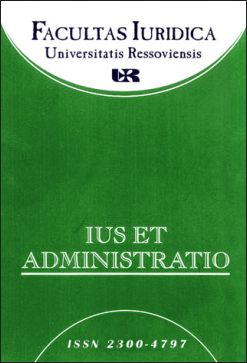The realization of the principle of the unfettered consideration of evidence in civil procedure and criminal procedure in the context of jurisprudence of the Supreme Court
Keywords:
free assessment of evidence, evidence, civil trial, criminal proceedings, evaluation criteriaAbstract
The principle of free assessment of evidence is one of the most important principles of the civil and criminal process. Its limits, as indicated by the Supreme Court case law, are determined by the following factors: logical, statutory, ideological and doctrines of law indicating non-normative criteria, e.g. logical criterion, life experience, legal and psychological. The principle is the instruction of the conduct of the evaluation of the collected evidence. In the scope of implementation of the principle of free assessment of evidence, the Supreme Court has repeatedly spoken, as well as the law. A large number of Supreme Court rulings on the application and implementation of this principle are leading to the conclusion that its interpretation still raises some uncertainty in the context or direction of the evaluation covers the full scope of application of the above criteria and factors. The question is whether the case and the criteria for the free assessment of evidence submitted by the jurisprudence line as well as the doctrine of legal science should all be fulfilled together in the performance of judicial review and should only confine itself to the evidence presented.
Downloads
Downloads
Published
How to Cite
Issue
Section
License
Copyright (c) 2017 Ius et Administratio

This work is licensed under a Creative Commons Attribution-NonCommercial-NoDerivatives 4.0 International License.

